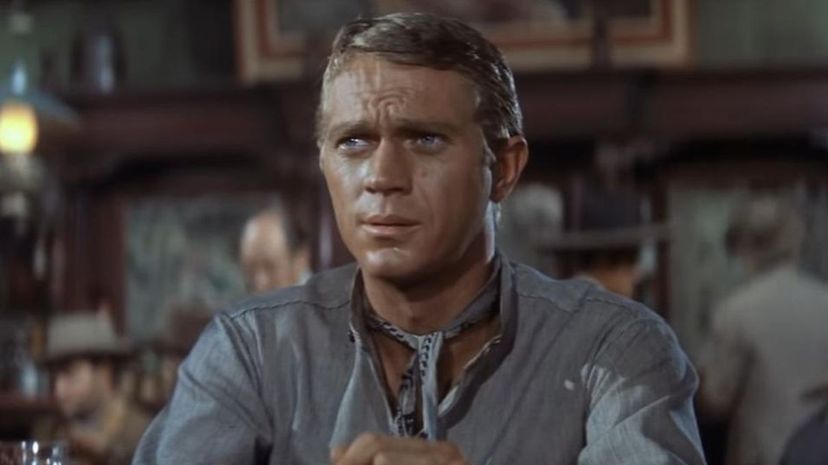
About This Quiz
Westerns are American mythology written in light and shadow. In its golden age in the post-war 1940s and '50s, the Western film was unrivaled in its popularity, reflecting a national mood of triumph and prosperity. It has been said that all short histories are great ones, and the films of directors like John Ford projected a myth of American exceptionalism in larger-than-life Cinemascope. The classic Westerns reinforced the idea that the US was a nation of rugged individualists filled with pioneer spirit who unfailingly did the right thing. In reality, the average '50s Western was about as accurate a portrayal of history as the average '50s sci-fi film was an accurate portrayal of space travel.
By the late 1960s through the 1970s, the popularity of the Western had declined. Nevertheless, Westerns were on the verge of a revisionist revolution as filmmakers like Sam Peckinpah and Robert Altman retooled the genre as a vehicle for allegory to explore themes as diverse as civil rights, politics and the conflict in Vietnam. Concurrently, European directors inspired by the Western's golden age branded the genre with their own stylized vision. Fifty years on, many of both the revisionist and the so-called "Spaghetti Westerns" have become classics in their own right. Although the Western's popularity waxes and wanes, it never rides off into the sunset for long.
So, are you an ornery trivia outlaw or a wet-behind-the-ears tenderfoot? Strap on your sixgun because we're calling you out for a Western movies showdown!
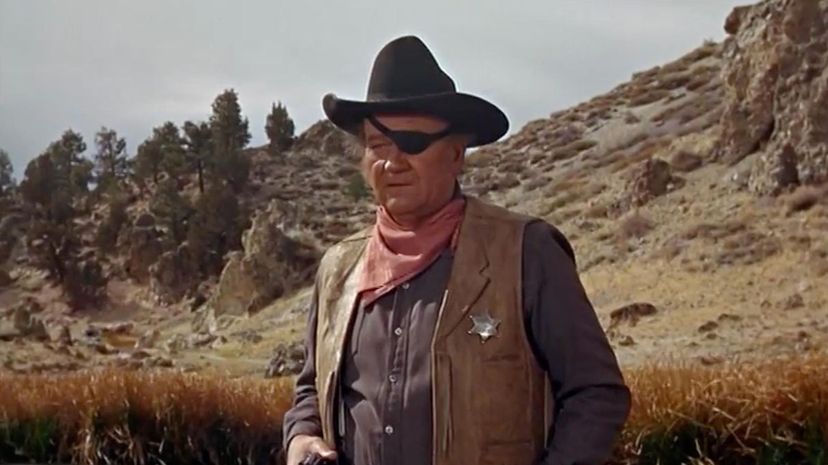
John Wayne won his only Oscar for portraying the hard-drinking, one-eyed U.S. Marshal Rooster Cogburn in 1969's "True Grit." When her father is gunned down by a deceitful employee, Mattie Ross (Kim Darby) hires Cogburn to help her bring the killer to justice.
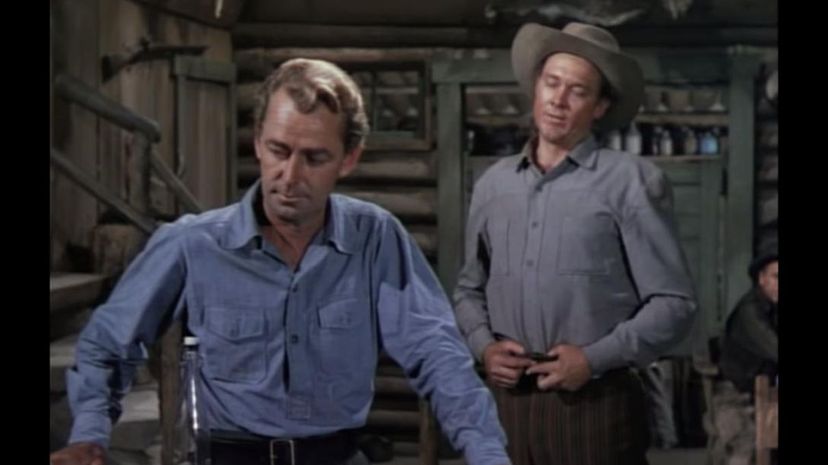
Considered one of the greatest Western films ever made, "Shane" was an instant hit upon its release in 1953. Directed by George Stevens, "Shane" stars Alan Ladd as a gunfighter turned farmhand who finds he must make a stand. Exploring themes of masculinity and courage, "Shane" is a complex classic.
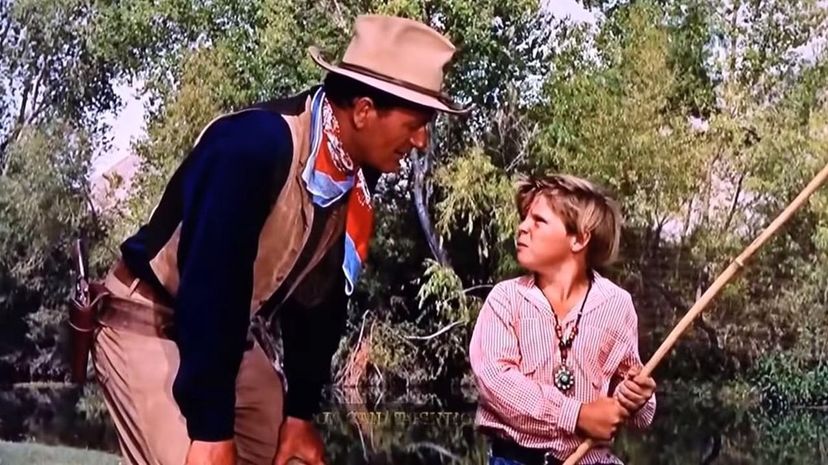
Taking advantage of the popular 3D fad of the early 1950s, "Hondo" is one of a handful of Westerns shot in the dual camera process. The film stars Western icon John Wayne in the title role as a cavalry scout who comes to the aid of a stubborn homesteader (Geraldine Page) and her son.
Advertisement
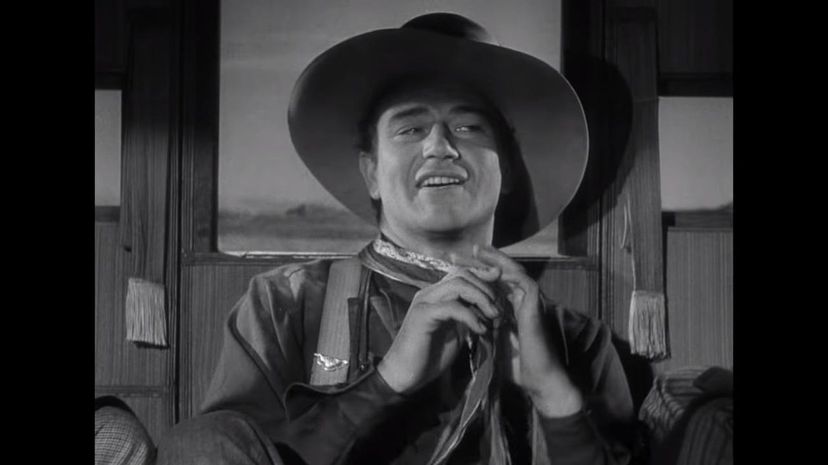
Directed by John Ford, "Stagecoach" is among the greatest films ever made. Starring John Wayne in one of his earliest roles as an outlaw known as the "Ringo Kid," the film follows the progress of a stagecoach and its colorful contingent of passengers through Apache country to New Mexico.
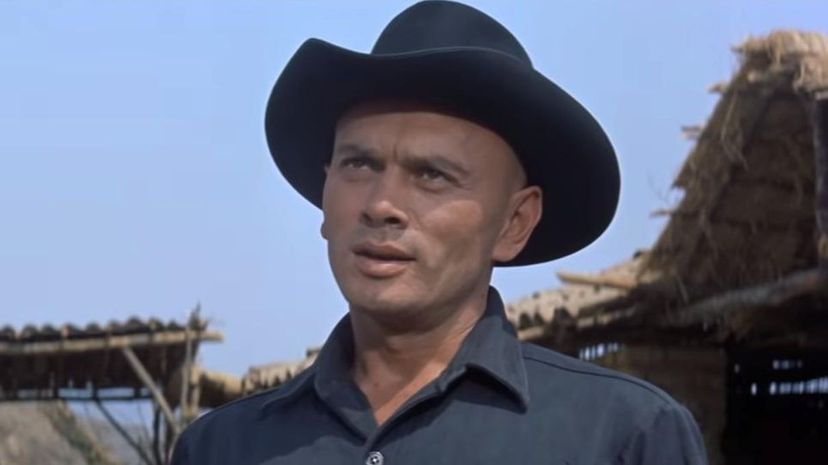
A Western remake of Japanese auteur Akira Kurosawa's epic "The Seven Samurai," 1960's "The Magnificent Seven" recasts the original film's ronin with mercenary gunfighters. Starring Steve McQueen and Yul Brynner, the remake so impressed Kurosawa that he presented director John Sturges with a sword.
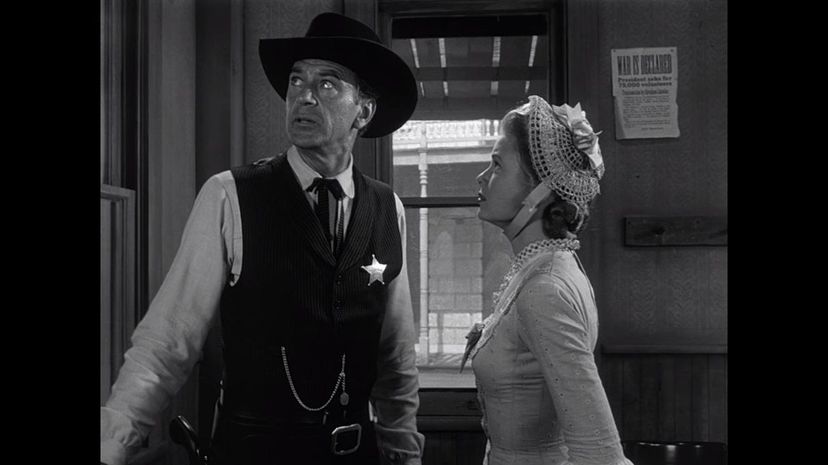
1952's "High Noon" stars Gary Cooper as a U.S. Marshall, hoping to retire to a peaceful life with his new bride. However, a gang of bloodthirsty outlaws has other plans. A parable for Red Scare blacklisting, the film is a favorite of several U.S. presidents, including Ronald Reagan and Bill Clinton.
Advertisement
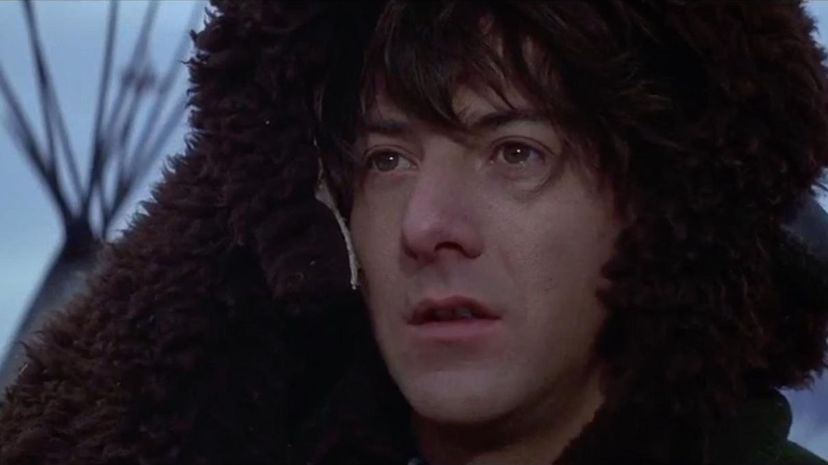
Considered a revisionist Western, "Little Big Man" is a classic in its own right. Starring Dustin Hoffman as Jack Crabb, a 121-year-old man who claims to be a living witness to the greatest and most notorious moments in the history of the Old West, this film skewers many of the genre's tropes.
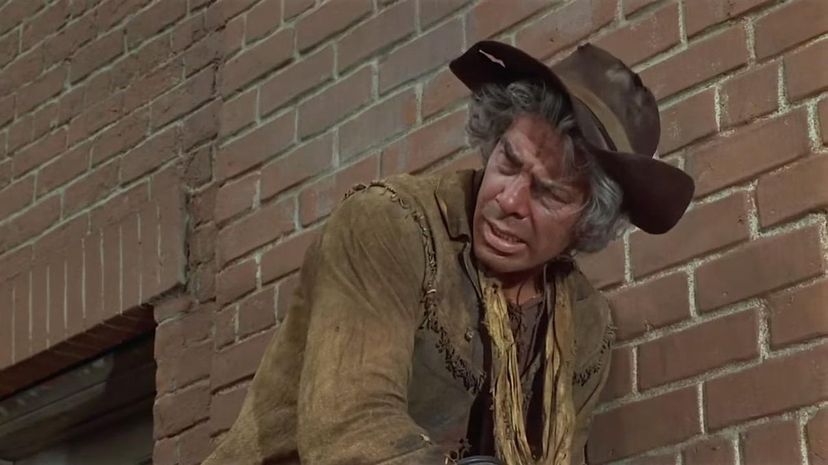
Jane Fonda stars as a demure boarding school student turned outlaw in the 1965 musical comedy "Cat Ballou." A hit with both audiences and critics, the film earned several Oscar nominations and a win for Best Supporting Actor for costar Lee Marvin.
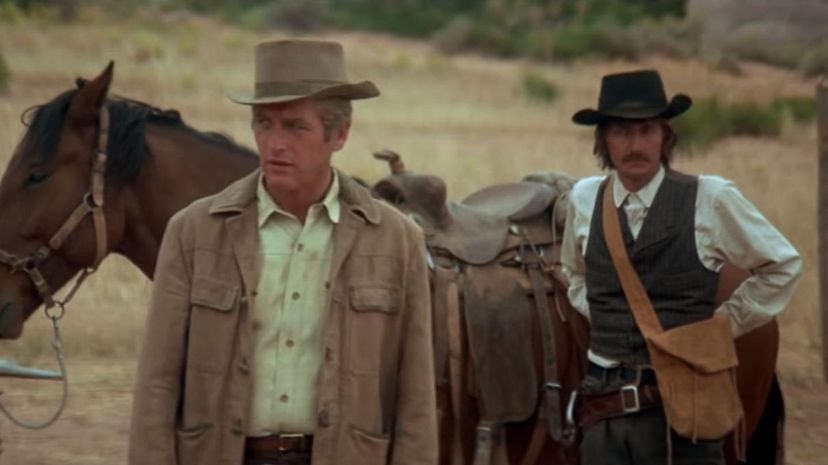
"Raindrops Keep Fallin' on My Head" from the 1969 Western "Butch Cassidy and the Sundance Kid" earned both an Oscar for Best Original Song and a four week run at number one on the Billboard Charts for songwriters Burt Bacharach and Hal David. Sung by B.J. Thomas, the song was a worldwide hit.
Advertisement
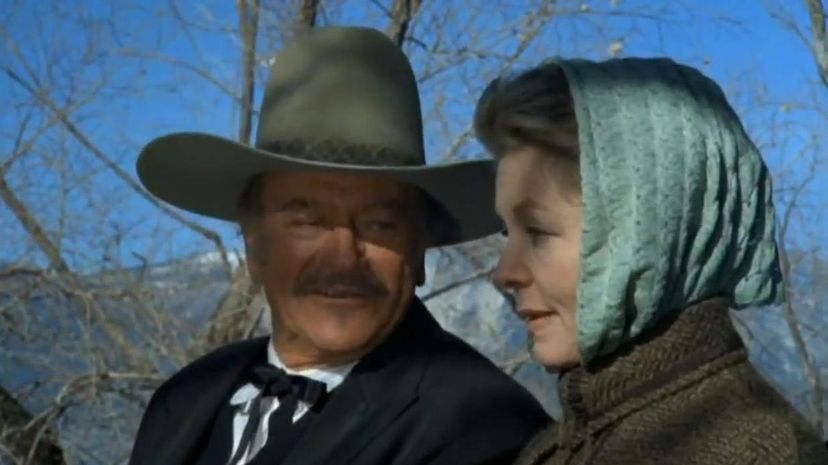
The Duke took his final bow with 1976's "The Shootist." Wayne stars as J.B. Books, a famed gunfighter known for his unparalleled skills with a pistol. When Books discovers he's dying of cancer, he decides to take his fate in his own hands.
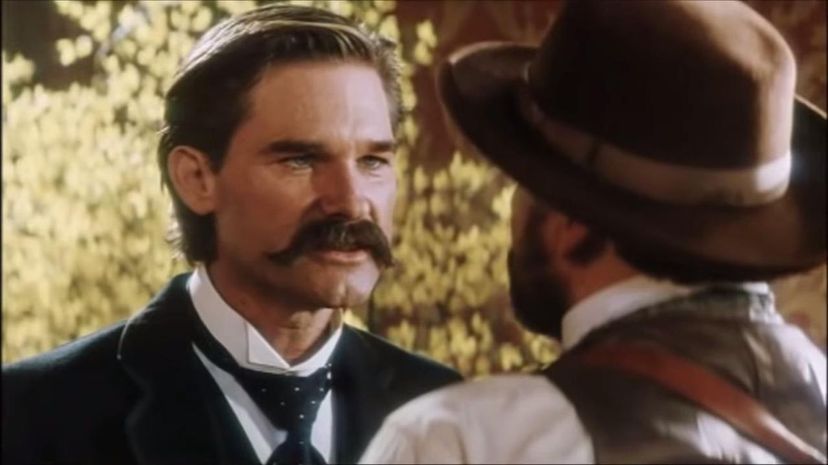
1993's "Tombstone" sheds the grit and political undertones of modern, revisionist Westerns for the style and high romance of the early days of the genre. Kurt Russell stars as legendary lawman Wyatt Earp with a scene-stealing Val Kilmer at his side as gunfighter Doc Holliday.
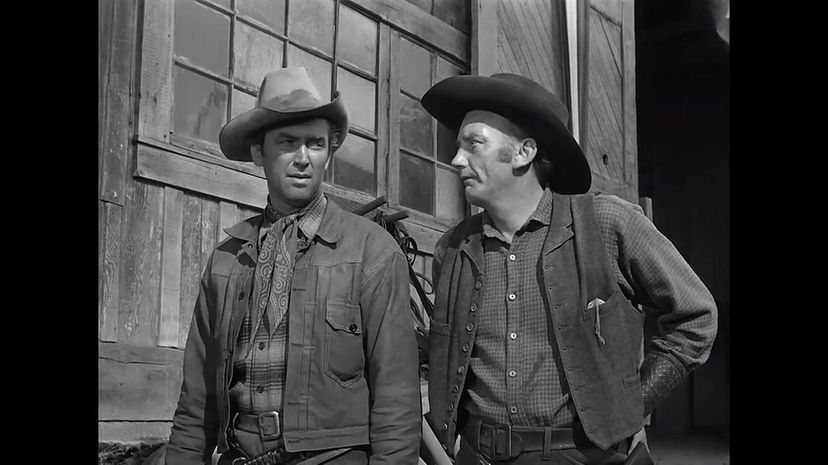
"Winchester '73" stars Jimmy Stewart as a man with a score to settle with a notorious outlaw. As crack shot Lin McAdam, Stewart defeats his adversary "Dutch" Brown (Stephen McNally) in a shooting contest for a coveted rifle. When Dutch steals the gun, it trades hands several times with tragic results.
Advertisement
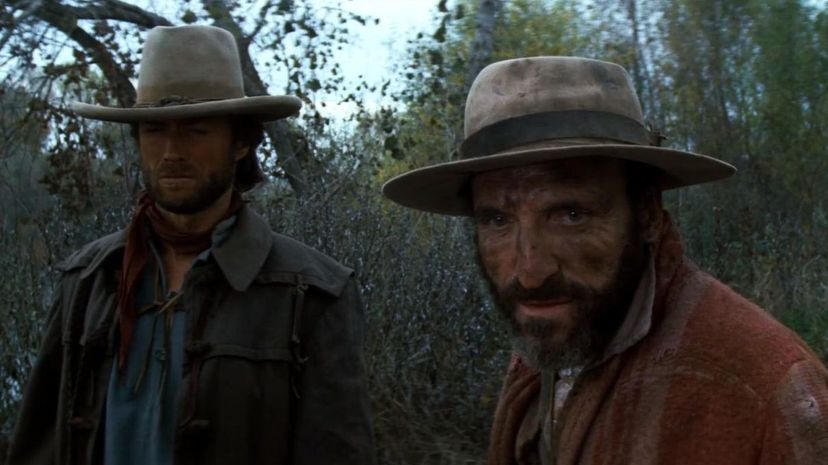
Clint Eastwood directed and starred in 1976's "The Outlaw Josey Wales." A revisionist Western, which Eastwood has described as an anti-war film, "The Outlaw Josey Wales" tells the story of a farmer driven to revenge when his wife and child are killed by renegade Union soldiers in the Civil War.
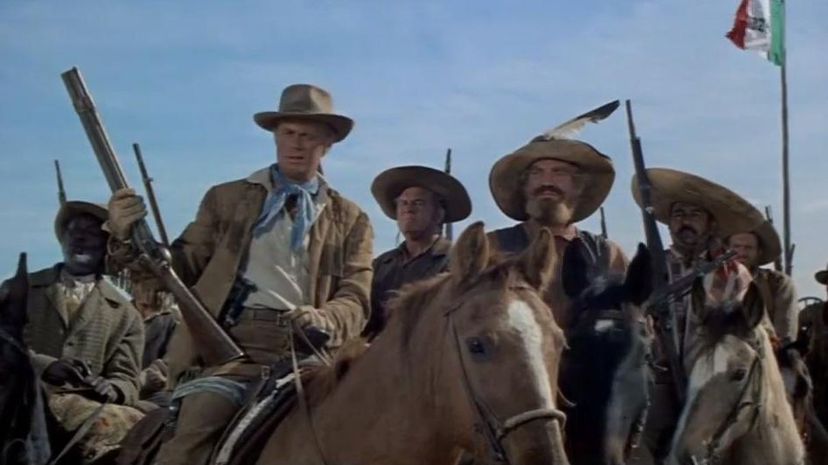
A passion project for director and star John Wayne, 1960's "The Alamo" chronicles the 13-day siege of the Alamo Mission by Santa Anna's forces in 1836. Wayne leads an all-star cast as frontier hero Davy Crockett. Short on historical accuracy, it's nonetheless a must-see for fans of the Duke.
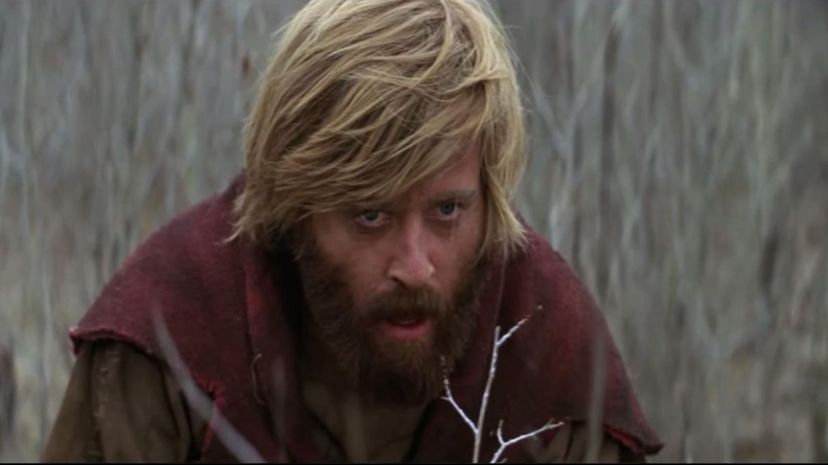
Robert Redford stars as the title character in Sydney Pollack's 1972 film "Jeremiah Johnson." In the film, Redford plays a Mexican-American War veteran who leaves society to find a new life as a mountain man. Initially naive about the endeavor, he's mentored by an experienced trapper.
Advertisement
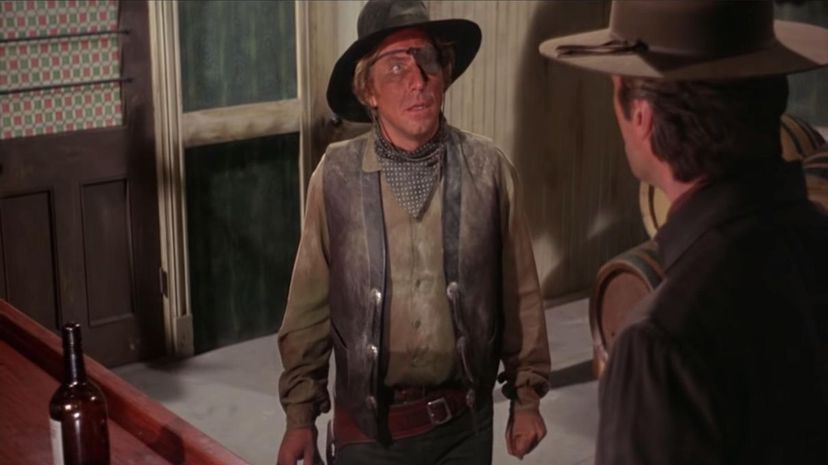
"Hang 'Em High" stars Clint Eastwood as Jed Cooper, an innocent man who's hanged for cattle rustling. Rescued by a U.S. Marshal (Ben Johnson), Jed also becomes a lawman, but his thirst for vengeance endangers his ability to deliver justice.
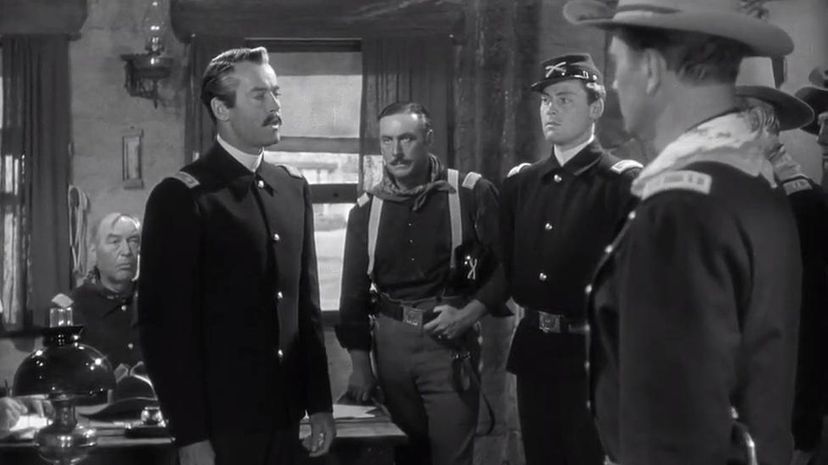
Henry Fonda and John Wayne engage in a battle of wills as cavalry officers with differing methods of dealing with an Indian uprising in John Ford's "Fort Apache." Perhaps one of the earliest revisionist Westerns, this 1948 film was among the first to present Native Americans in a sympathetic light.
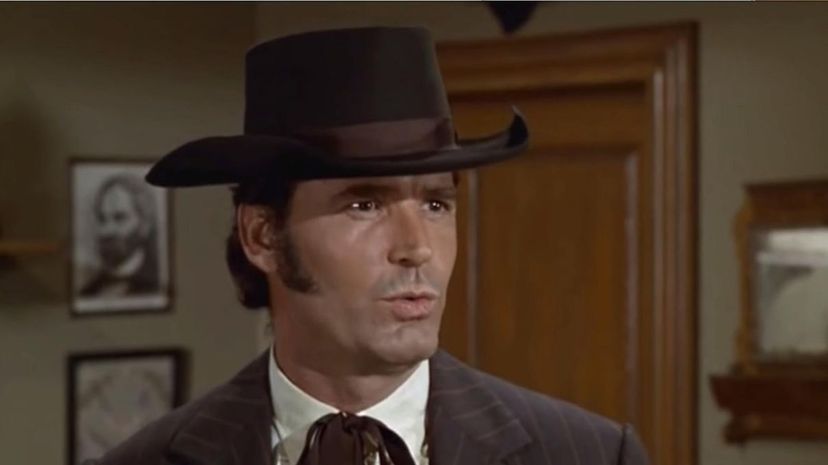
"Support Your Local Sheriff!" stars James Garner as a slick but broke gunslinger who takes on the impossible task of taming the gold rush town of Calendar, Colorado in "Support Your Local Sheriff!" Lampooning traditional genre tropes, this zany film uses a cast of Western veterans to up the laughs.
Advertisement
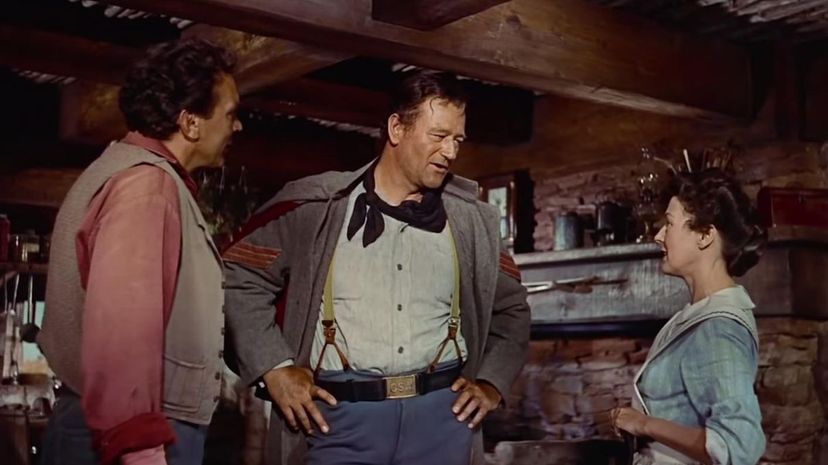
In terms of both creative output and quality, director John Ford is the undisputed king of the American Western film. Although it's difficult to narrow down one as his best, a likely contender would be "The Searchers." John Wayne gives one of his performances as a driven man facing impossible odds.
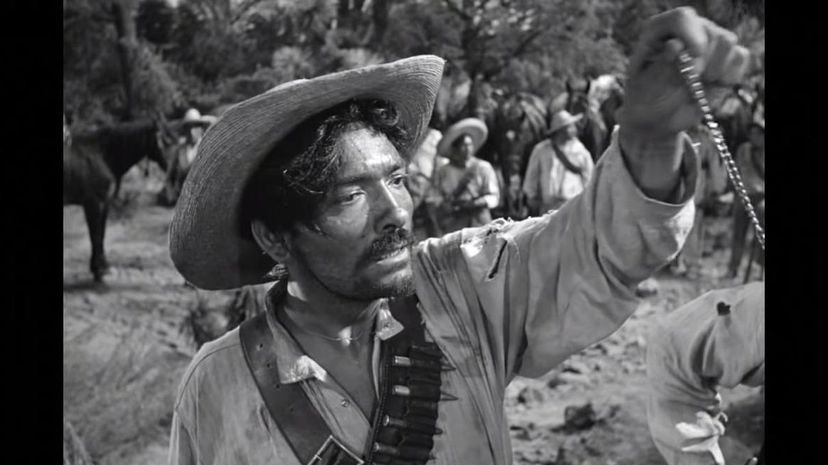
"We don't need no stinking badges!" Although everyone seems to know this line, true cinephiles know it's paraphrased from John Huston's "The Treasure of the Sierra Madre." Starring Humphrey Bogart, the film follows a group of treasure hunters who face danger from both within and without.
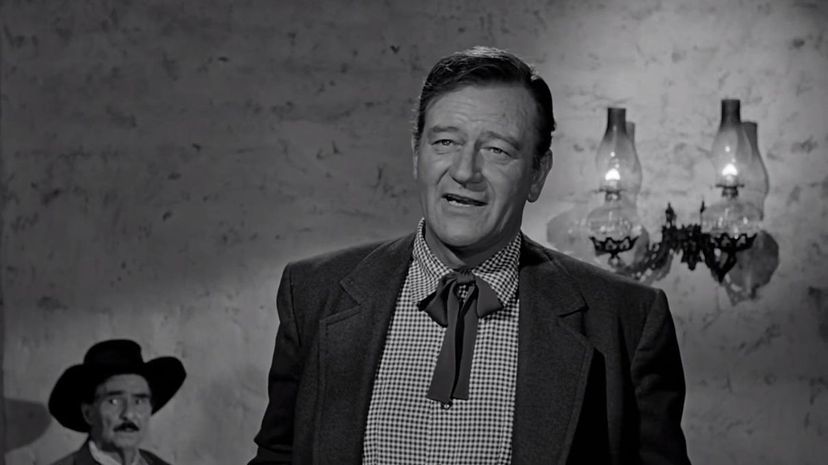
More intimate in scope than John Ford's other Westerns, 1962's "The Man Who Shot Liberty Valance" nonetheless features epic performances from two larger-than-life actors. Starring Jimmy Stewart as a tenderfoot lawyer and John Wayne as a skilled gunslinger, this film examines how myths are made.
Advertisement
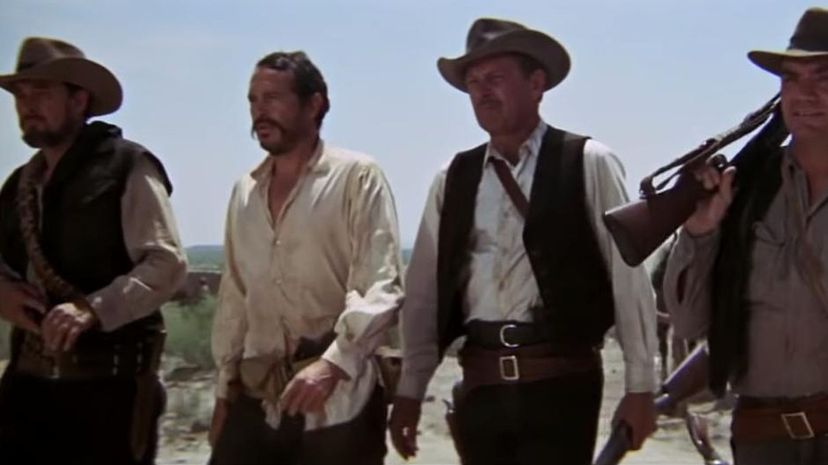
Both hailed and reviled by critics when it was unleashed on unsuspecting audiences in June of 1969, "The Wild Bunch" is a landmark not only of the Western genre but the whole of American cinema. Directed by Sam Peckinpah, the film's unique editing and camerawork are unequaled.
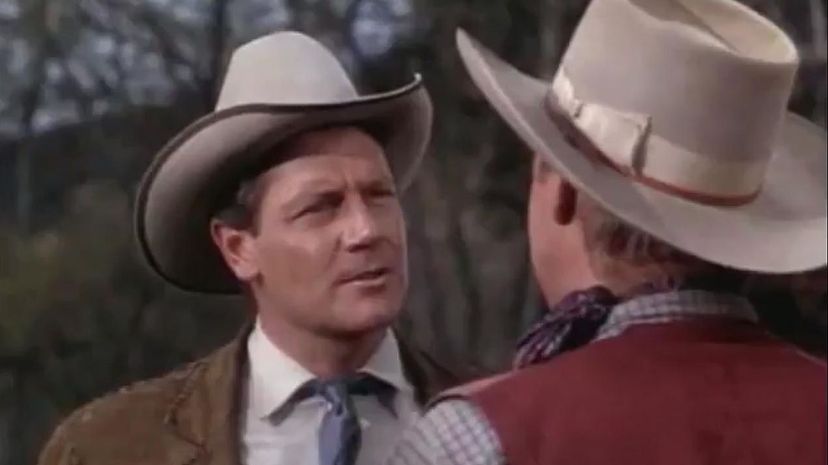
Based on a 1902 novel by Owen Whistler, "The Virginian" was the third film adaption of the popular Western story. Starring Joel McCrea as the eponymous Virginian and Barbara Britton as a feisty schoolmarm, the film is a tale of danger and romance set against the backdrop of the Wyoming Range War.
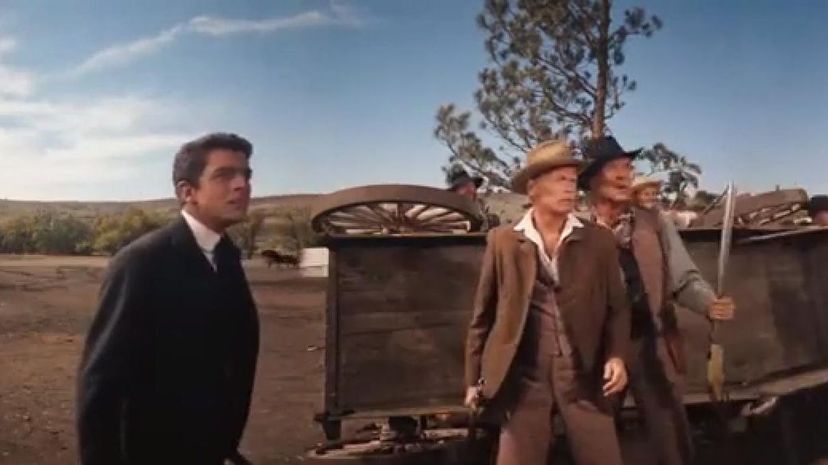
A veritable Who's Who of American motion picture talent, 1962's "How the West Was Won" takes the phrase "all-star cast" to the extreme. Chronicling the Westward Expansion through the experiences of a single family, the film spans 50 years of American history from 1839 to 1889.
Advertisement
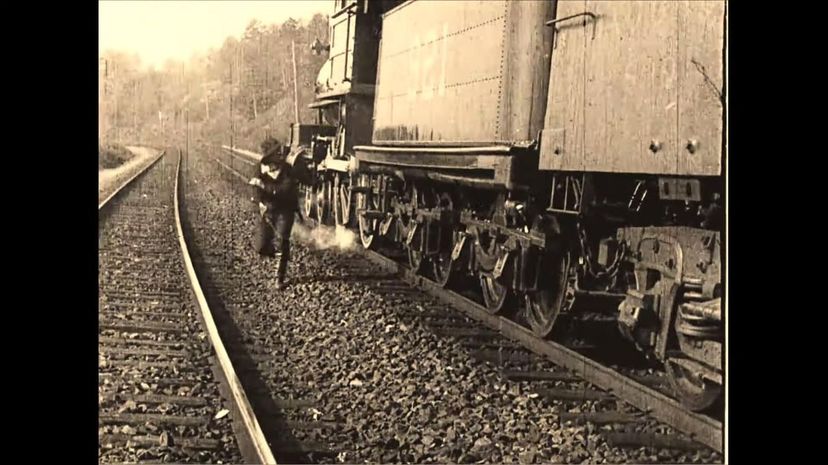
With a running time of 12 minutes, 1903's "The Great Train Robbery" is both the first Western and a milestone in the evolution of narrative film. Directed by Edwin S. Porter, this silent film from 1903 has all of the elements that would define the genre.
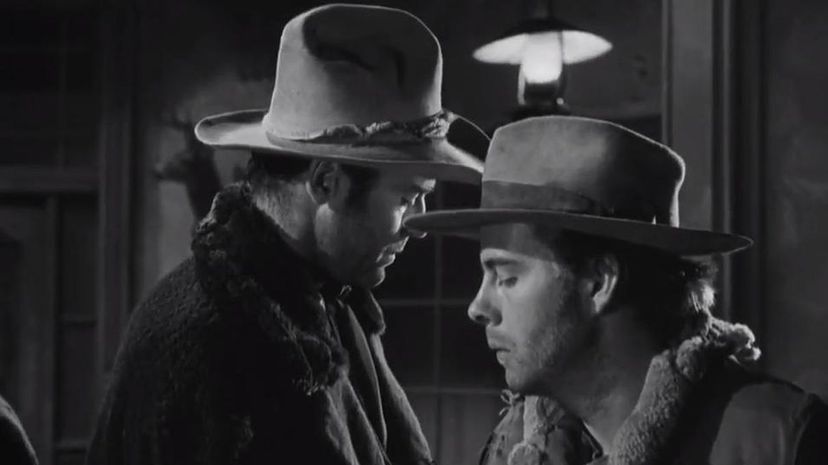
"The Ox-Bow Incident" from 1943 stars Henry Fonda and Harry Morgan as a pair of drifters drawn into an ethical dilemma when they join a posse to track down a gang of murderous cattle thieves. Tackling serious themes of mob violence, justice and morality, this film is not a typical '40s Western.
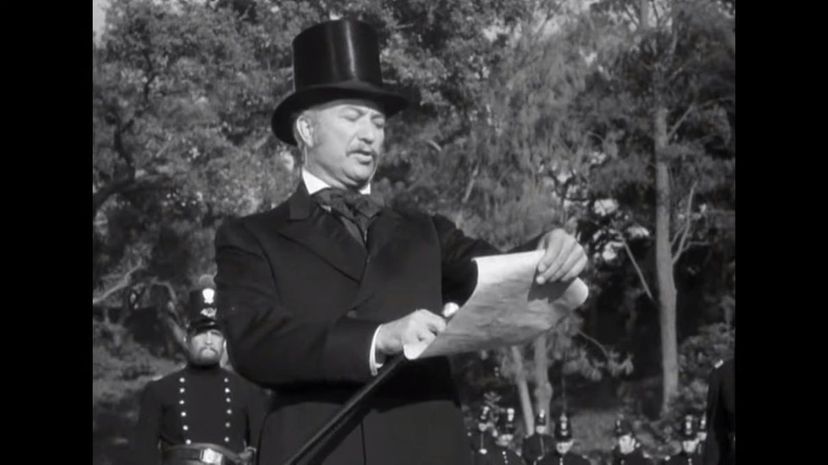
Leading man Errol Flynn stars as General George Armstrong Custer in this highly romanticized biopic from 1941. Riddled with factual errors, the film plays to Flynn's heroic image by portraying Custer as a dashing scamp. The film even goes so far as to paint Custer as an advocate for Native Americans.
Advertisement
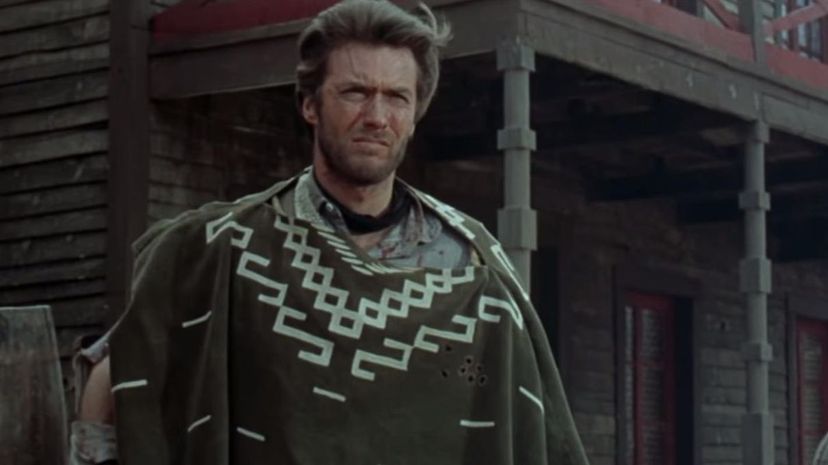
Sergio Leone's highly stylized "A Fistful of Dollars" launched both the career of its star Clint Eastwood as a box office draw and the worldwide popularity of Italian "Spaghetti Westerns." This film was Eastwood's first as the mysterious "Man With No Name," a role he would reprise in two sequels.
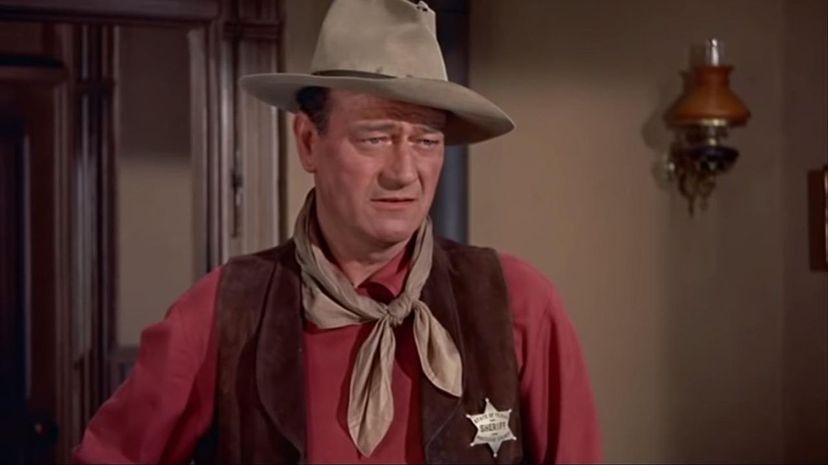
Made as a rebuttal to the political tone of "High Noon," which John Wayne had declared an "un-American" film, Howard Hawks's "Rio Bravo" is a Western with clearly defined heroes and villains. Co-staring crooner Dean Martin, Wayne is at his swaggering best in this archetypal Western.
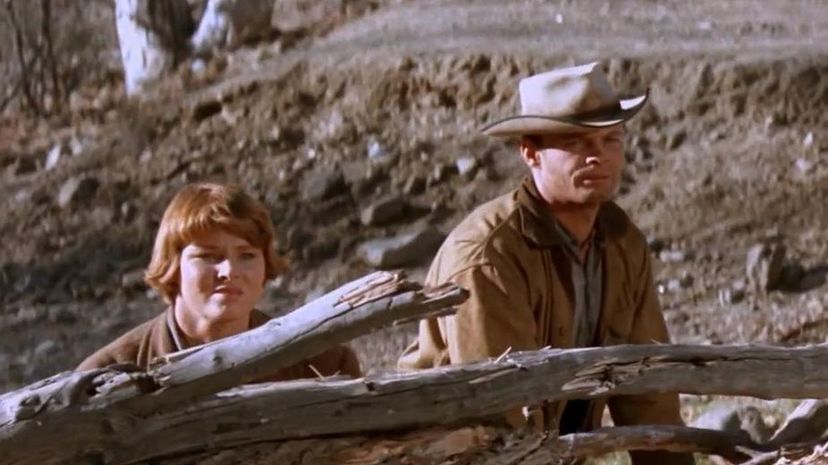
1962's "Ride the High Country," directed by Sam Peckinpah, features the final film performance of classic Western actor Randolph Scott. Hired by an old friend and former lawman (Joel McCrea) to guard a gold transfer, Scott decides instead to rob it. In the end, however, loyalty wins out.
Advertisement
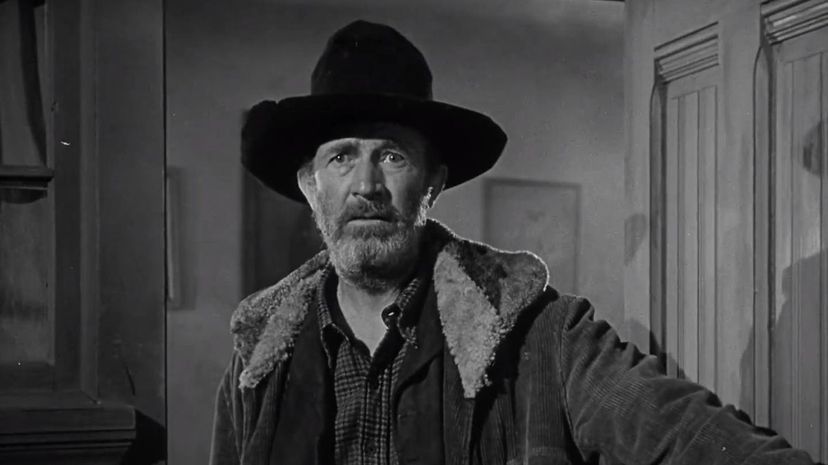
"My Darling Clementine" was directed by John Ford stars Henry Fonda as lawman Wyatt Earp. One of many Westerns dealing with the events leading up to the Gunfight at the O.K. Coral, Ford's film takes poetic license with the facts but remains one of the most compelling depictions of the historic event.
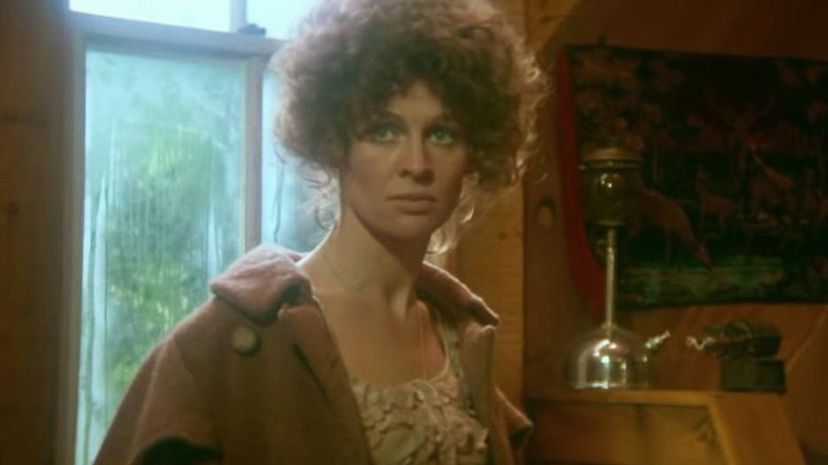
Grim, gritty and bleak, Robert Altman's 1971 film "McCabe and Mrs. Miller" is the ultimate revisionist Western. Devoid of heroes, Altman's tale of gambler McCabe (Warren Beatty) and lady of the evening Mrs. Miller (Julie Christie) is a character study of desperate people on the margins of society.
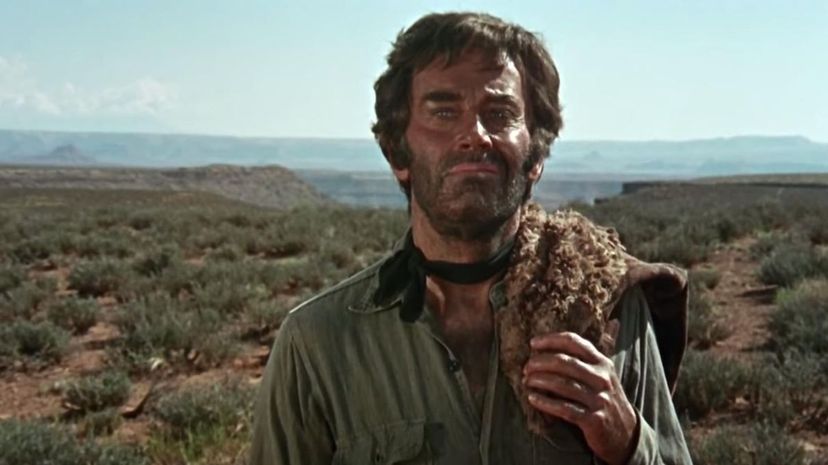
Sergio Leone succeeds in subverting the fatherly, good-guy persona of Henry Fonda in the influential "Once Upon a Time in the West." All traces of the man who once played Lincoln are erased as Fonda plays a bloodthirsty hired gun who has no scruples against shooting children.
Advertisement
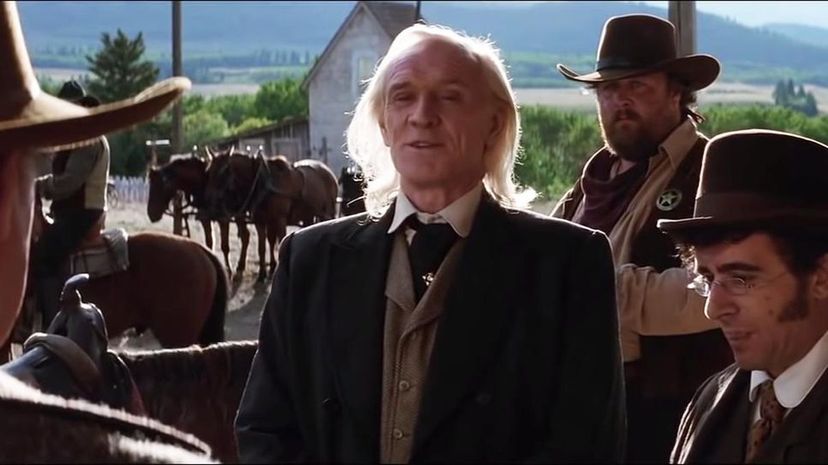
"Unforgiven," released in 1992, took top honors for Best Picture as well as earning Clint Eastwood his first Academy Award for Best Director in 1993. The ultimate revisionist Western, "Unforgiven" subverts every convention of the genre to present a grim depiction of the consequences of violence.
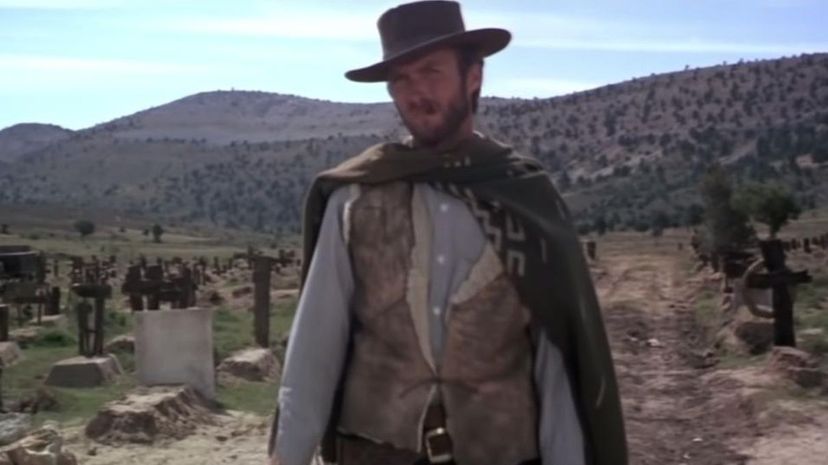
"The Good, the Bad and the Ugly," the last installment of Sergio Leone's "Dollars Trilogy" finds Clint Eastwood's iconic Man With No Name (referred to as "Blondie" in this film) teaming up with a Mexican outlaw (Eli Wallach). Set during the Civil War, the duo are on a search for Confederate gold.
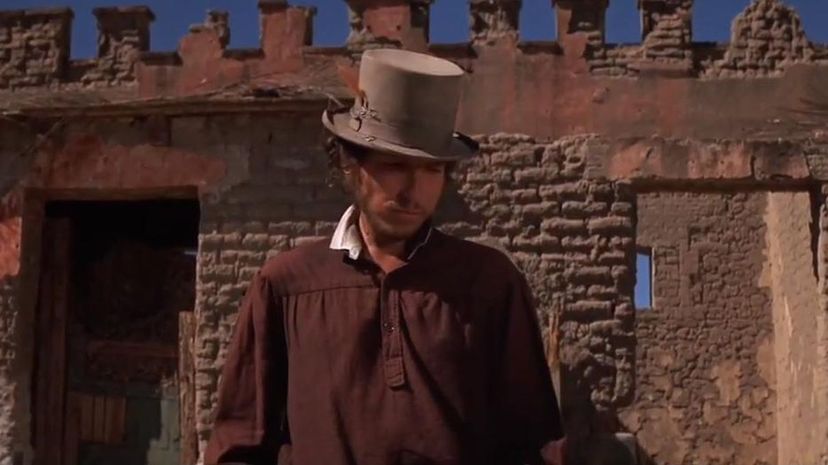
Sam Peckinpah brought his inimitable style to the story of outlaw William H. Bonney in 1973's "Pat Garrett and Billy the Kid." Starring Kris Kristofferson as the Kid and James Coburn as Sheriff Pat Garrett, the film initially failed to find an audience but has since become a classic.
Advertisement
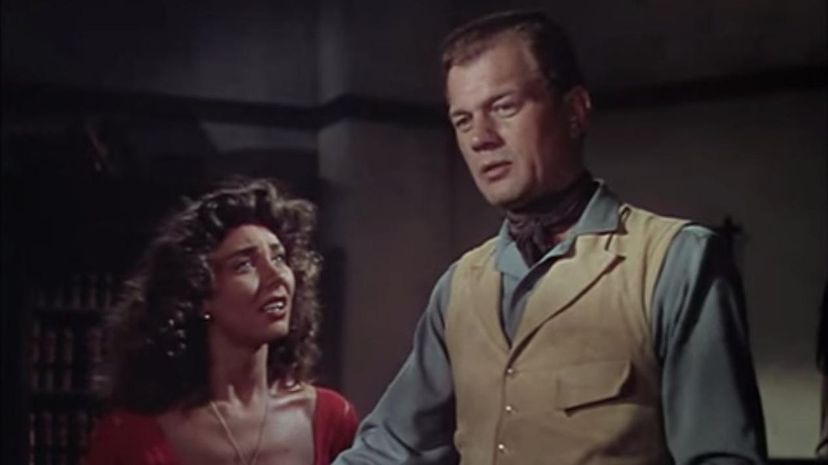
Based on Niven Busch's 1944 novel, "Duel in the Sun" was screenwriter David O. Selznick's attempt to repeat the success of his previous film, the universally beloved "Gone With the Wind." A heady mix of melodrama and Western action, the film's racier moments drew the ire of censors.
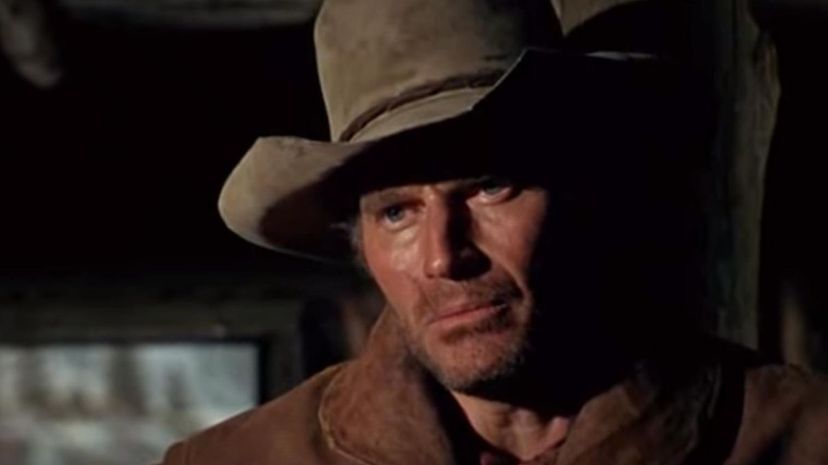
Charlton Heston claimed that 1968's "Will Penny" was his favorite role and the one for which he was most proud. The veteran actor stars as an aging cowboy rescued by a mother and her son squatting on the outskirts of the ranch he works on. In the end, the life he's chosen wins out over domesticity.
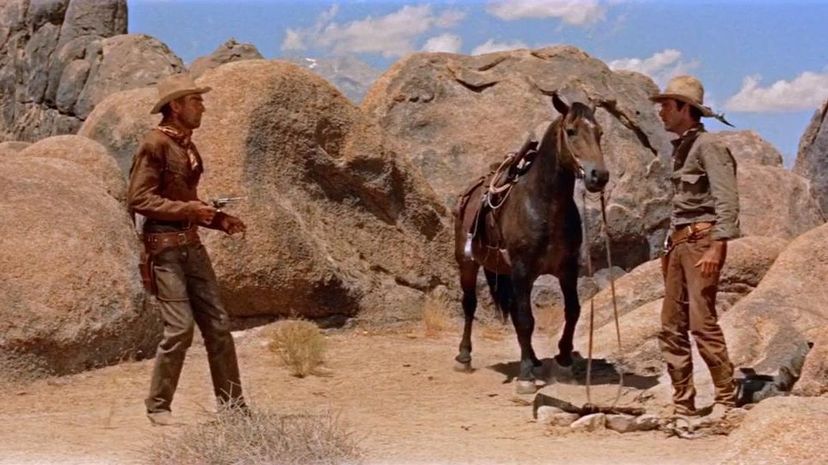
In "Ride Lonesome," Randolph Scott portrays bounty hunter Ben Brigade. In the film, Brigade apprehends killer Billy Johns (James Best) in an effort to draw out Johns' brother (Lee Van Cleef) who murdered his wife. Along the way he teams with a reformed outlaw (Pernell Roberts) seeking amnesty.
Advertisement
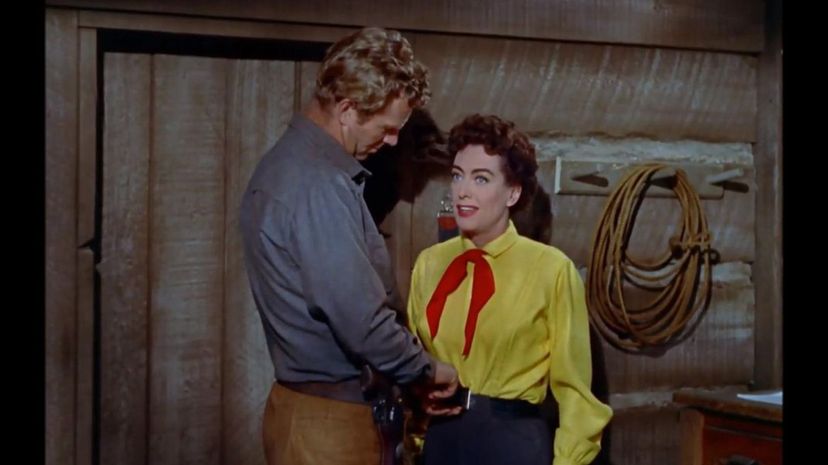
Although Sterling Hayden has the title role, Joan Crawford is, without a doubt, the star of "Johnny Guitar." Crawford plays Vienna, a tough-as-nails owner of a rowdy saloon. Using a stagecoach heist as a pretense to drive her out of town, rival Mercedes McCambridge challenges Crawford to a showdown.